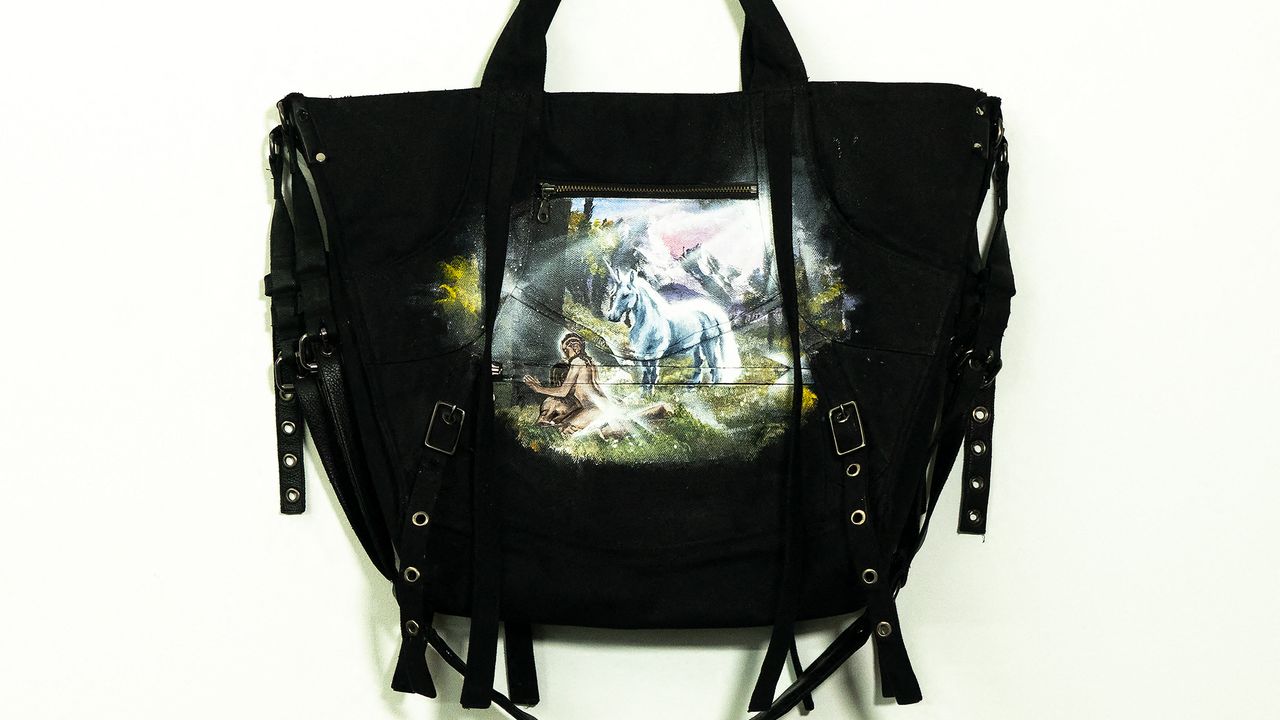There are no available flights from Nottingham, England to Los Angeles. Not today, not ever. You’ll have to take a couple trains to London Heathrow first—a two-and-a-half hour trip ahead of 11 more hours of jet-borne purgatory. skaiwater knows this all too well. The British rapper-producer first left the Midlands in 2019, splitting their time between the U.S. and the UK before making LA their permanent home. It was a business decision: Their Auto-Tune-drenched, dance-rap melodrama was resonating far more in America than it had back home. The way they put it, “There’s not a lot of money to get [in England]” for the music they’re making. The success of “rain,” a mutated R&B ballad that was both irresistible and inescapable last year, set the tone for the epistolary heartache of #gigi, their acclaimed LP, which married rage rap with pop, soul, and every regional subgenre you can move your hips to. But beneath the music’s undeniable danceability lies a fractured spirit.
Their new mini-album, #mia (short for Manic in America), acts as a spiritual successor to their lovelorn breakout, using stadium rock and radio pop as the skeleton for full-blooded, 808-laden furor. Across 8 tracks in 23 minutes, skai is still calling out to a lover who can’t hear them, prostrating themselves in the name of reciprocity. The demo of “pop” they quietly released just after #gigi felt like a bare-bones plea for attention so specific that listening became voyeuristic. From the jump, a chiptuned choir harmonizes through skai’s plight like extras circling the protagonist in a musical. skai is wistful and restless, pleading to their partner through motormouthed dissonance. “Don’t fuck him ’cause you miss me,” they ask without asking. The orchestral swells of the album version sound like heaven’s waiting room. Even in all of its desperation, it’s beautiful.
Rather than sifting through genres like on #gigi, the production on #mia is firmly rooted in skai’s own meld of rap-rock electronica. On “feral,” twangy acoustic licks slide through claps, snares, and face-scrunching bass like butter, like a postmodern take on Pluto X Baby Pluto. The languid fuzz simmering on the ground floor of “maria” tears a page from Duster’s Contemporary Movement, each strum wallowing in static. “You don’t feel the same.” is built around jaunty shards of electric guitar, but the track loses steam early when a cookie-cutter indie pop drum break barges in. This is #mia’s biggest pitfall: its inability to sit still. skaiwater’s music draws personality from its eclecticism and unpredictability, but clunky mash-ups and beat switches hold this record back. After “ur song” rumbles in with 808 thunderclouds and a scintillating synth lead, the stiff wall-of-sound guitar distortion jerks it off course.
